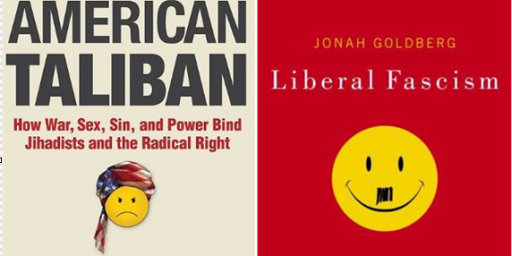Will Blogs Kill Political Magazines?
Andrew Sullivan, who was editor-in-chief of The New Republic when he was 12 and now works at The Atlantic, notes that the websites of conservative opinion magazines National Review and The Weekly Standard get no more traffic than the top conservative blogs.
So the competition for the opinion-reader is intense. And the financial edge of individual bloggers with relatively no overhead and free content will surely undermine the clout of such magazines over time.
It may be that the blogosphere will kill off opinion journalism as we have known it. In so far as that might mean less groupthink, less control by a few big money machers, and lower barriers to new talent and expertise, that strikes me as pretty good news overall. Or maybe the print magazines will hang on as appendages to the online debate, as a way of milking those email addresses for money and offering a luxury product that will still be worth it.
The main advantage magazines have over blogs, it seems to me, is institutional gravitas. Television and radio bookers, publishing houses, opinion columnists, mainstream journalists, and other influence leaders are far, far more likely to turn to someone with the imprimatur of an institution that to a self-published blogger.
There are exceptions, of course. Markos Moulitsas, Matt Yglesias, Ezra Klein, Glenn Greenwald, and others have managed to become regular talking heads almost exclusively through their blog-gained fame and at least three of them got book deals, too. I can’t off the top of my head think of a conservative counterpoint, though — maybe Glenn Reynolds?
Ultimately, it’s television that matters if you’re trying to get the word out. Bill Kristol, George Will, Bob Novak, and others have had much more impact with their on air commentary than for their written work. Indeed, most viewers are only casually aware that these people have columns at all.
Influence, not pageviews, is the ultimate goal.





You mean as an alternative to actual, expressed gravitas? It isn’t just bloggers that have run the print media into the ground it’s the print media themselves. Increasingly, the political magazines have emulated the worst qualities of blogs when they might have exploited their strenghts, which include the time and resources to do actual research and investigation.
Why pay for unsupported, poorly expressed, openly biased opinions from a political magazine when you can get that free from a blogger?
“I can’t off the top of my head think of a conservative counterpoint, though — maybe Glenn Reynolds?”
Matt Drudge, surely. Eugene Volokh and Dan Drezner, maybe.
I don’t consider Drudge a blogger, in that he has never actually run a blog.
Volokh and Drezner have certainly raised their profile with their blogs — as has Sullivan, of course — but they have prestigious institutional platforms to bolster them. Volokh and Drezner are professors at prestige schools who happen to blog.
James,
I don’t know what else you’d call Drudge (other than a person who is far more influential than anyone in such a goofy hat should be).
As for Volokh and Drezner, I don’t see the line between them and Reynolds, who you cited. Without their blogs, they’d all be obscure professors who get called on for quotes about once a year.
Sullivan, on the other hand, had been editor of The New Republic long before he blogged.
Drudge is a webmaster who posts the occasional good rumor. He does essentially no analysis and doesn’t even archive his old posts. It’s not a blog in any traditional sense.
UCLA and Chicago/Tufts are big time schools in major media markets, whereas UT-Knoxville isn’t. Their profiles are raised by their blogs, to be sure, but the fact that they’ve got bonafide credentials behind them make it hard to dismiss them as “just” bloggers.
“Drudge is a webmaster who posts the occasional good rumor. He does essentially no analysis and doesn’t even archive his old posts. It’s not a blog in any traditional sense.”
Other than not archiving, that makes him little different than Reynolds, unless you count “Heh. Indeed.” as insightful analysis.
We’ll have to disagree on the prominence the others would have without their blogs.
The commonly accepted definition of a blog is a web-based journal, updated periodically, that has permalinks. It also may support comments and/or trackbacks.
Instapundit is a blog (it supports permalinks). DrudgeReport isn’t (it doesn’t).
you guys are better, it’s impossible to ask for clarification, or to express your perturbed inductiveness
to such outdated one sided current event communication distribution devices.
I like talking back, this form of media gives me this ability, well sorta I’m much better a talking back, then typing back.
the powerline guys are showing up more and more on TV. John H. Hinderaker and Scott W. Johnson. particularly with the Coleman/franken recount going on. I think john H was on o’reilly last night.
Michelle malkin was she first a columnist? she is a frequent TV presence and now with hot air, showing frequent utubes.